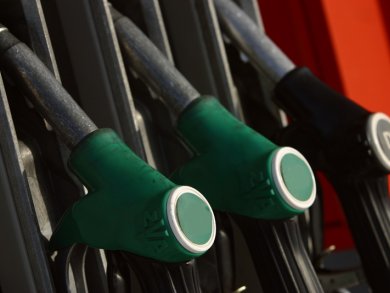Nanoparticles are efficient catalysts due to their high surface-to-volume ratio, and have now been applied to biofuels to increase fuel combustion. R. B. Anand and J. Sadhik Basha, National Institute of Technology, India, have used a mechanical agitator to create an emulsion consisting of jatropha biodiesel (a fuel derived from the crushed seeds of the jatropha plant), water, and a surfactant, then blended in different proportions of alumina nanoparticles.
The nanoparticles were shown to increase fuel–air mixing, which led to more complete burning of the biofuel. In addition to outperforming regular biofuel, the nanoparticle-spiked fuels produced significantly lower quantities of nitrogen oxide and carbon monoxide gases, and created less smoke.
- Role of nanoadditive blended biodiesel emulsion fuel on the working characteristics of a diesel engine
J. Sadhik Basha, R. B. Anand,
J. Renewable Sustainable Energy 2011, 3, 023106.
DOI: 10.1063/1.3575169



